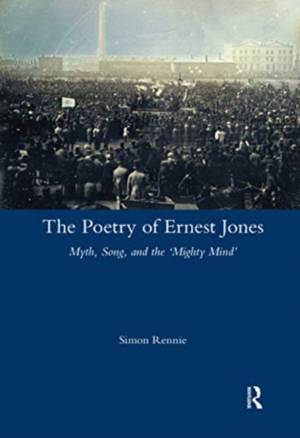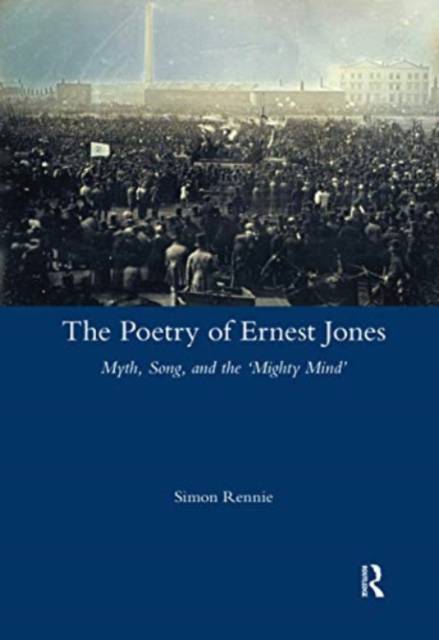
- Retrait gratuit dans votre magasin Club
- 7.000.000 titres dans notre catalogue
- Payer en toute sécurité
- Toujours un magasin près de chez vous
- Retrait gratuit dans votre magasin Club
- 7.000.000 titres dans notre catalogue
- Payer en toute sécurité
- Toujours un magasin près de chez vous
The Poetry of Ernest Jones Myth, Song, and the 'Mighty Mind'
Simon RennieDescription
As the last leader of the Chartist movement, Ernest Charles Jones (1819-69) is a significant historical figure, but he is just as well-known for his political verse. His prison-composed epic The New World lays claim to being the first poetic exploration of Marxist historical materialism, and his caustic short lyric 'The Song of the Low' appears in most modern anthologies of Victorian poetry. Despite the prominence of Jones's verse in Labour history circles, and several major inclusions in critical discussions of working-class Victorian literature, this volume represents the first full-length study of his poetry. Through close analysis and careful contextualization, this work traces Jones's poetic development from his early German and British Romantic influences through his radicalization, imprisonment, and years of leadership. The poetry of this complex and controversial figure is here fully mapped for the first time.
Spécifications
Parties prenantes
- Auteur(s) :
- Editeur:
Contenu
- Nombre de pages :
- 226
- Langue:
- Anglais
- Collection :
Caractéristiques
- EAN:
- 9780367598778
- Date de parution :
- 30-06-20
- Format:
- Livre broché
- Format numérique:
- Trade paperback (VS)
- Dimensions :
- 170 mm x 248 mm
- Poids :
- 420 g







